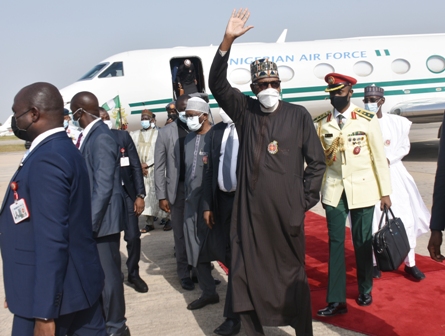Business
PH Airport Users React Over Dana Airline Suspension

Stakeholders and users of the Port Harcourt International Airport, Omagwa, have reacted to the suspension of flight operations of Dana Airline by the Nigerian Civil Aviation Authority (NCAA), describing it as very surprising and sudden.
Some of the airport users that spoke to The Tide on the matter said Dana Airline had been one of the major airlines that had sustained regular flight operations and stable prices.
According to them, the airline had remained the very choice of many air passengers, and had enjoyed the patronage of Port Harcourt Airport passengers.
Reacting to this, while interacting with The Tide, one of the passengers, Clifford Igwe, said the suspension came as a surprise to him.
He noted that some procedures ought to have been followed, which ought to be in the public domain, before the pronouncement of suspension.
“I have not heard that Dana airline workers went on strike for non-payment of salaries, or for any other issue that would warrant strike. I have not also heard any threat of Assets Management Company of Nigeria (AMCON) to take over Dana Airline management and operations.
“When the Arik airline had issues on management and operations, the AMCON took over the operations uptill now. They were never suspended.
“I think that there is more to the indefinite suspension of the Dana Airline than what they want us to believe, and the earlier they resolve this matter the better, because the workers will be affected, especially at this critical time of hardship and unemployment”, Igwe said.
Also reacting, an airline ticker, Mr Francis Madu, said the Dana group is not an organization that would be referred to as being financially handicapped to operate an airline.
He alleged that some highly connected individuals want to have stake in the Dana Airline, which, he said, had not been successful, adding that the suspension of the airline has reduced the chance the Port Harcourt passengers have to make alternative.
“Other airlines operating at the Port Harcourt Airport will take advantage of the suspension to create scarcity and hike price of ticket”, he said.
The Dana Airline operations was suspended last Wednesday midnight, which caused serious delay on the airline’s flight operations on that same day at the Port Harcourt Airport.
By: Corlins Walter
Business
Fidelity Bank To Empower Women With Sustainable Entrepreneurship Skills, HAP2.0
Business
President Tinubu Approves Extension Ban On Raw Shea Nut Export
Business
Crisis Response: EU-project Delivers New Vet. Clinic To Katsina Govt.
-

 News2 days ago
News2 days agoAmend Constitution To Accommodate State Police, Tinubu Tells Senators
-

 Politics2 days ago
Politics2 days agoSenate Urges Tinubu To Sack CAC Boss
-

 News2 days ago
News2 days agoDisu Takes Over As New IGP …Declares Total War On Corruption, Impunity
-
Business2 days ago
President Tinubu Extends Raw Shea Nuts Export Ban To 2027
-
Business2 days ago
Crisis Response: EU-project Delivers New Vet. Clinic To Katsina Govt.
-
Business2 days ago
President Tinubu Approves Extension Ban On Raw Shea Nut Export
-
Rivers2 days ago
Etche Clan Urges Govt On Chieftaincy Recognition
-
Sports2 days ago
NDG: Rivers Coach Appeal To NDDC In Talent Discovery

